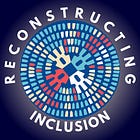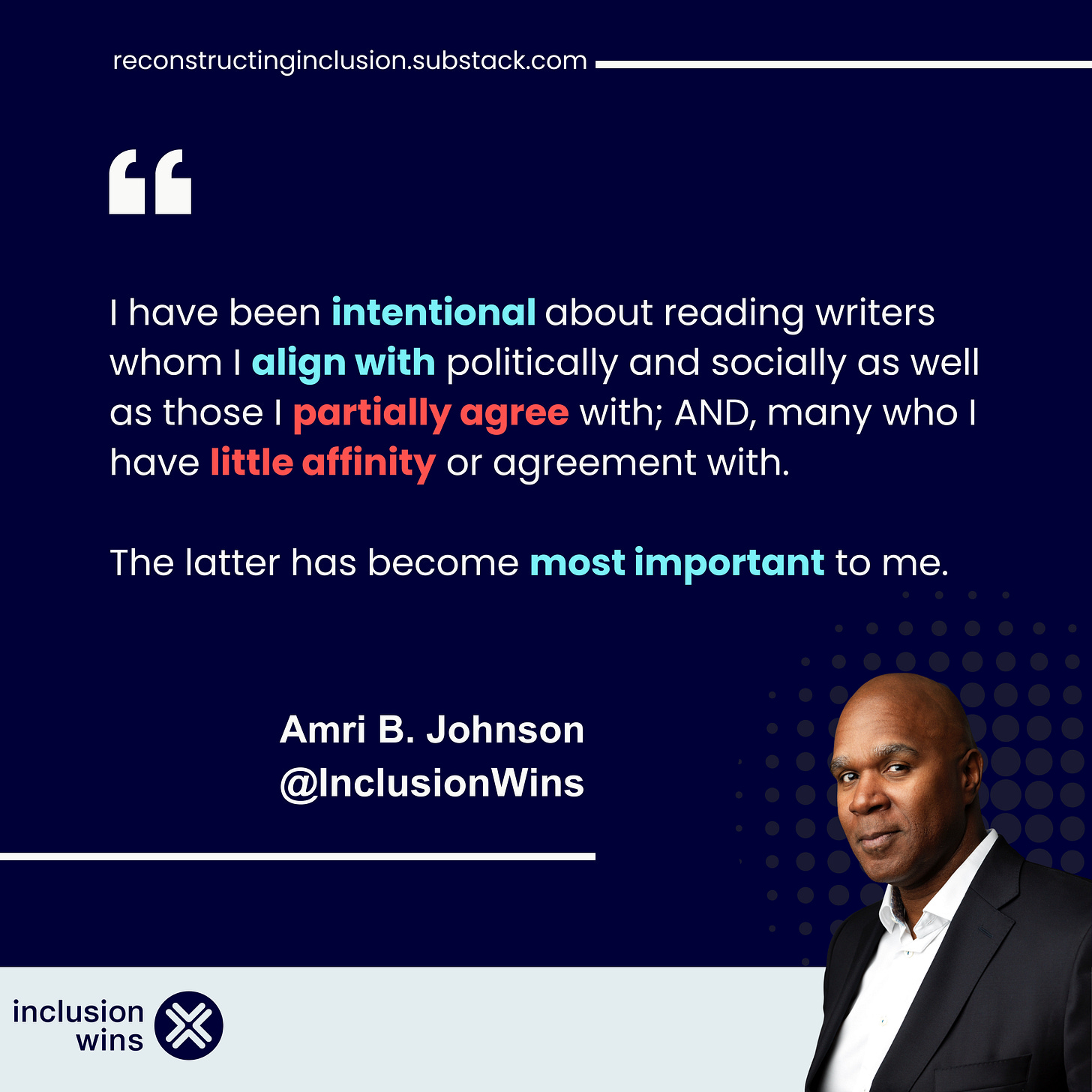Rethinking DEI: Accountability and Transformation in the Wake of Election Outcomes
I promised myself that I wouldn't get caught up in the dynamics of post-election discussions. I broke that promise.

I will break it once more, twice more, when it comes to publishing something publicly.
So, what’s my message now?
People who work in DEI and are not supporters of the Republican Party or Donald Trump should not blame the loss of Vice President Harris on racism, sexism, or any of that. Musa al-Gharbi has laid out why doing so is not even a fact-based conclusion in his excellent article, “A Graveyard of Bad Election Narratives.”
Is it possible that some people did not vote for Kamala Harris because she was a woman, a Black, South Asian, or mixed heritage woman of color? There might be some individuals for whom that was the case, but I don't believe it was a significant minority.
When we automatically go there, it weakens our ability to move DEI forward in the most empowering way.
If you work in or are an advocate/champion/supporter of DEI, I implore you not to attribute the election outcome to this, as it is, at most, a small percentage of why it turned out the way it did.
Instead, recognize that those “on the other side” did a commendable job engaging people with their message. They approached it differently than Vice President Harris did, resulting in a win that could be considered a landslide, representing a significant and diverse populace in the United States. It is likely the most multidimensional electorate selection of a Republican candidate in history.
Why should we consider avoiding divisive rhetoric in response to Trump’s victory? There are many reasons, I will share three.
First, it suggests that Democrats and DEI professionals take zero responsibility for what happened. As someone who has been in the practice of DEI for over 20 years, I believe that some of this is part of the identity synthesis, as Yascha Mounk describes it, which has been perpetuated for the past decade.
While one doesn’t have to agree, there’s a solid argument that it contributed to Kamala's loss. We have been so focused on group identity and group identity superiority that we have created an orthodoxy around it. Such orthodoxy has led many people to associate DEI with group identity and little else. There was some of that on the ballot that faced pushback, not just from so-called “white people” but from any individual who doesn’t believe that their skin tone, gender, or sexual preferences define who they are.
Skin in the Game
Secondly, a predominant narrative among DEI practitioners often projects blame onto any unfavorable outcome as an -ism or -phobia. This approach does not serve us; it is incredibly disempowering.
It absolves us of responsibility for what we have put into the world. This is not about assigning blame but about reflecting on our actions.
Can we hold the mirror up and recognize that people are not resonating with this anymore?
How can we create conditions for everyone to understand that DEI is for everyone?
If we practice it in its most accessible, unambiguously prioritized, and purpose-aligned form, selling DEI as an everyone paradigm is easy.
Third, we should acknowledge the reality rather than react with sadness, crying, and personal days (which I find tiring to hear and read about). In 2016, I predicted that Trump would win by the late summer. I was confident that his momentum would carry him to the White House. I did not want him to win, but I believed he would and was mentally prepared for him once he did. When I expressed this, people were upset. This year, I thought it was possible again (less so, but increasingly the closer we got to election day), but I did not articulate it to anyone.
2016 was the beginning of the era of Facebook and social media, in general, influencing the electorate in ways we had never experienced. Now, it is expected to have a well-tuned influence on all political parties worldwide. My insights came from conversations with friends in and from Topeka, Kansas, who hesitated to vote for another Clinton.
This year, the conversations were different. People expressed that they did not appreciate being told they were wrong for believing that one candidate would do more for them than another. They set aside the moral conversation, focusing instead on what would be best for them. They may not have always considered what was best for the country, but what was best for the populace likely aligns with what is best for the country, as people indicated they wanted.
Many people voted for Donald Trump, who likely would not have voted four years ago, and there is a reason for that. Do I blame this entirely on DEI practitioners?
Absolutely not.
Many DEI practitioners, like myself, believe in heterodoxy, building perspective-getting skills, creating conditions for people to thrive, and teaching and practicing it according to the above principles and adjacent ones. We believe that our work contributes to organizational health and, therefore, the business bottom line—not necessarily in a direct causal line but in a correlative one.
So, do not automatically scream racism, sexism, or phobias. Take responsibility and look in the mirror regarding our role in the outcome of this election. Take stock of what we want to create moving forward rather than justifying this loss as a loss for DEI or a reason to spend the next four years criticizing the election. We should be critical of any official working on taxpayer dollars, which I encourage.
In doing so, consider that this election, while disappointing, might be the catalyst that saves DEI from the practices that have moved it from a place to create care, openness, safety, and trust to a hotbed for grievance and perpetual victimhood and the reinforcement of power asymmetries.
This election can be a clarion call. A prompt to realign with agentic principles, deepen our capacity for magnanimity, and look at the entire construct of diversity, equity, and inclusion, its warts and beauty marks, and begin to guide it and then align it with its transformative potential. We need this work in its highest form more than ever.
Can we, as practitioners, supporters, and advocates, walk the path of taking it there?
I hope this was helpful. . . Make it a great day! ✌🏿






